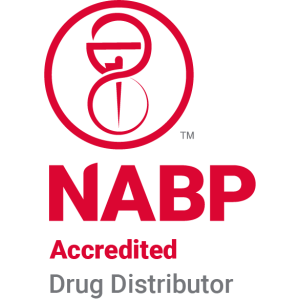Pharmacists play a vital role in healthcare to ensure patient safety and to help achieve desired clinical outcomes. While community pharmacy and hospital pharmacy are the most common career paths for pharmacists, there are an abundance of alternative paths to be taken as well. Some examples of lesser-known pharmacist jobs include pharmacy informatics, pharmacogenomics, pediatrics, geriatrics, nuclear, disease state specific specialties, consulting, and many more.
When Congress enacted the Drug Quality & Security Act (DQSA) of 2013 in response to the compounding tragedy at the New England Compounding Center, a new opportunity for pharmacists came into the spotlight. The DQSA formed Sections 503A and 503B of the Food, Drug, & Cosmetic Act, creating two distinct pharmacy compounding arenas. 503A compounding pharmacies are traditional patient-specific compounding entities that are regulated by their local State Board of Pharmacy. OurPharma falls into the 503B outsourcing category, which means we are FDA-registered and have much stricter regulatory requirements from the FDA and State Boards of Pharmacy within the states we are licensed in. Outsourcing facilities bridge the gap between 503A compounding facilities and large pharmaceutical manufacturers but lean heavily toward the strict standards one would expect from a large manufacturer. The same current Good Manufacturing Practices and regulations that manufacturers are regulated by also apply to outsourcing facilities, with a few exceptions.
A pharmacist in an outsourcing facility has an opportunity to engage in many ways. At OurPharma, production pharmacists are responsible for supervising all aspects of aseptic processing, helping formulate and improve Standard Operating Procedures (SOP) & batch records, participating in product development initiatives, and ensuring production staff adheres to policies and procedures throughout the lifecycle of the drug product in the facility. Pharmacists can also be involved in regulatory and compliance, ensuring the Company complies with all local, state, and federal regulations. The regulatory aspect also embodies DEA and State Board of Pharmacy licensing. Another area of involvement is within the Quality Unit, which is ultimately responsible for the implementation of the SOPs within the facility and all aspects of the safety and quality of the products that we produce. While traditional clinical roles are not found in an outsourcing facility setting, a pharmacist has just as much impact on patient outcomes as pharmacists in patient-facing roles. Overall, most pharmacists in outsourcing facilities will become acquainted with Quality Systems, process implementation and improvement, and aseptic processing best practices.
There are few colleges of pharmacy that focus on manufacturing and sterile compounding in its curriculum, so there is a lack of exposure for pharmacists to feel prepared to work in an outsourcing facility. There are, however, ways to gain exposure and build an alternative pharmacy career. In 2019, the Board of Pharmacy Specialties started offering a Board-Certified Sterile Compounding Pharmacist (BCSCP) certification examination to offer a pathway to validate a pharmacist’s advanced knowledge and experience in sterile compounding. For those that are looking to get basic foundational knowledge, ASHP offers a Compounded Sterile Preparations Certificate course which can serve as a prep course for taking the BCSCP exam. Furthermore, the American Society of Quality offers a Certified Pharmaceutical GMP Professional exam, assessing one’s knowledge of Quality Systems, Regulatory/Compliance, Laboratory Systems, Infrastructure, Materials & Supply Chain Management, Sterile Nonsterile Manufacturing, Packaging & Labeling, and product Development.
Thanks to all the pharmacists and their contributions to ensuring positive outcomes for their patients. If you are looking for something new and fresh, I highly recommend researching the impact you can have in a 503B outsourcing facility.


